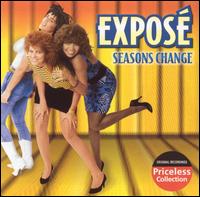Florida Court Dismisses Trademark Dispute Over '80s Band Expose'
 In November, Crystal Entertainment & Filmworks, Inc., brought suit in the Southern District of Florida against members of the 1980s band Exposé on the ground that it — not performers Jeanette Jurado, Ann Curless Weiss, Gioia Bruno, and Kelly Moneymaker — owns the EXPOSÉ name and common law trademark. The complaint alleged that the band members entered into agreements stating that Crystal’s predecessor owned the mark, which the predecessor assigned to Crystal, as well as a 2006 trademark license agreement with Crystal. The complaint stated claims for false designation of origin, cybersquatting, state unfair competition, breach of contract, and constructive trust.
In November, Crystal Entertainment & Filmworks, Inc., brought suit in the Southern District of Florida against members of the 1980s band Exposé on the ground that it — not performers Jeanette Jurado, Ann Curless Weiss, Gioia Bruno, and Kelly Moneymaker — owns the EXPOSÉ name and common law trademark. The complaint alleged that the band members entered into agreements stating that Crystal’s predecessor owned the mark, which the predecessor assigned to Crystal, as well as a 2006 trademark license agreement with Crystal. The complaint stated claims for false designation of origin, cybersquatting, state unfair competition, breach of contract, and constructive trust.
Unfortunately for Crystal, the complaint failed to plead a basis for federal jurisdiction. On Jan. 23, Judge William Zloch dismissed the complaint without prejudice of his own accord:
“The Court notes that the Federal courts are of limited jurisdiction. The presumption, in fact, is that a Federal court lacks jurisdiction in a particular case until it has been demonstrated that jurisdiction over the subject matter exists. Rule 8(a)(1) requires that complaints contain ‘a short and plain statement of the grounds upon which the court’s jurisdiction depends.’ The basis of the district court’s jurisdiction must be alleged ‘affirmatively and distinctly and cannot ‘be established argumentatively or by mere inference.’ Plaintiffs’ Complaint fails to allege this Court’s subject matter jurisdiction over the above-styled cause. Therefore, the Court lacks federal subject matter jurisdiction over the Complaint. Although the instant Complaint cites various provisions of the Lanham Act, such citations alone are insufficient to establish subject matter jurisdiction over the case.”
The court also noted the complaint failed to establish that diversity of citizenship existed — the alternative basis for subject matter jurisdiction.
The case cite is Crystal Entertainment & Filmworks, Inc. v. Jurado, No. 07-61748 (S.D. Fla. Jan. 23, 2008).
Reader Comments (1)